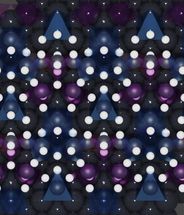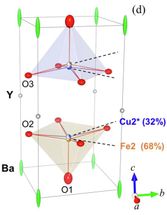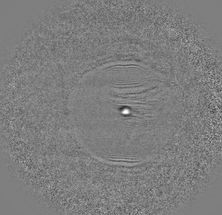Electroluminescence devices
A highly efficient, low driving-voltage, phosphorescent material for electroluminescence devices has been developed by scientists in Asia.
Zhaomin Hou from RIKEN Advanced Science Institute, Japan and colleagues from Jilin University, China, have synthesised an iridium complex with highly efficient electroluminescence (EL) properties.
Organic light-emitting devices (OLEDs) use phosphorescent metal complexes as emitting materials as they can show much higher emission efficiency than that of the fluorescent counterparts. Unfortunately, high-performance phosphorescent OLEDs are usually fabricated by doping the emitters at a low concentration range. It is difficult to maintain a consistent control of the dopant concentration (less than 10 %) during the doping process, so the reproducibility of mass production is challenging.
Hou has demonstrated for the first time that phosphorescent metal complexes bearing a sterically demanding ancillary amidinate ligand can be used for the fabrication of OLEDs. Thus resulting in highly efficient, low driving-voltage phosphorescence, which can be used at a wide range of doping concentrations or even without requirement of doping the emitter into a host matrix.
It is thought that due to the excellent performance and the ease of synthesis of this amidinate-ligated phosphorescent iridium complex reported here; it should have future potential in practical applications such as flat-panel displays and organic lighting.
Original article: Yu Liu et. al.; "Amidinate-ligated iridium(III) bis(2-pyridyl)phenyl complex as an excellent phosphorescent material for electroluminescence devices"; Chem. Commun. 2009
Most read news
Other news from the department science

Get the analytics and lab tech industry in your inbox
By submitting this form you agree that LUMITOS AG will send you the newsletter(s) selected above by email. Your data will not be passed on to third parties. Your data will be stored and processed in accordance with our data protection regulations. LUMITOS may contact you by email for the purpose of advertising or market and opinion surveys. You can revoke your consent at any time without giving reasons to LUMITOS AG, Ernst-Augustin-Str. 2, 12489 Berlin, Germany or by e-mail at revoke@lumitos.com with effect for the future. In addition, each email contains a link to unsubscribe from the corresponding newsletter.





















































